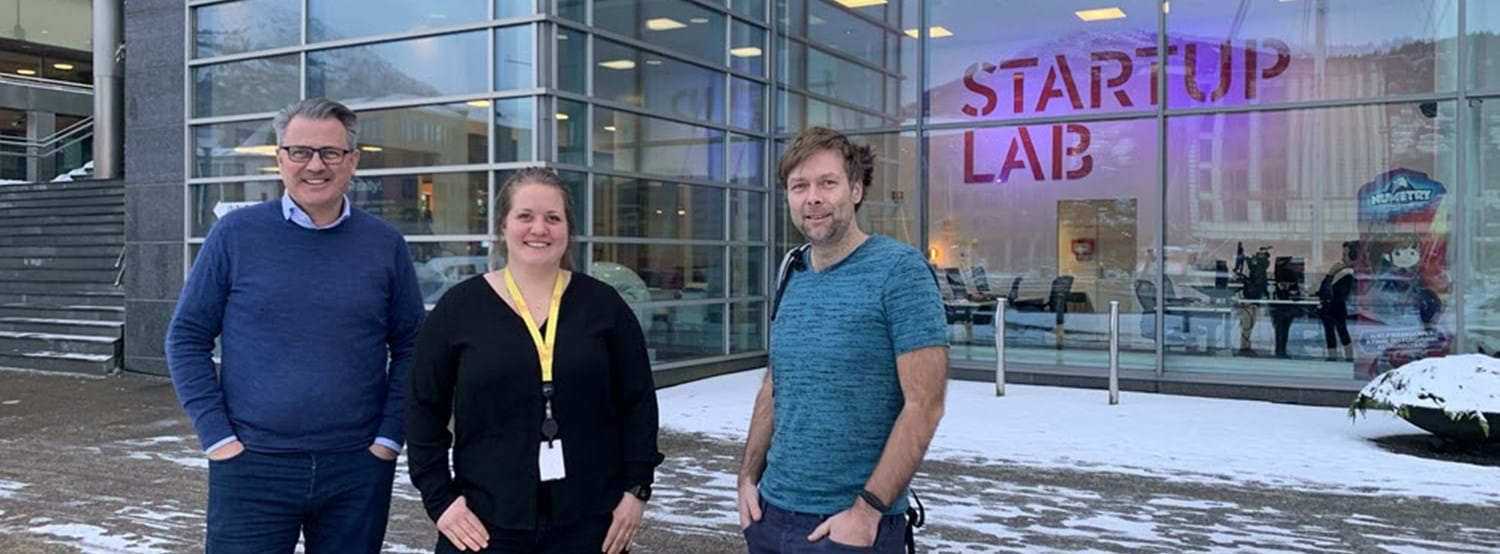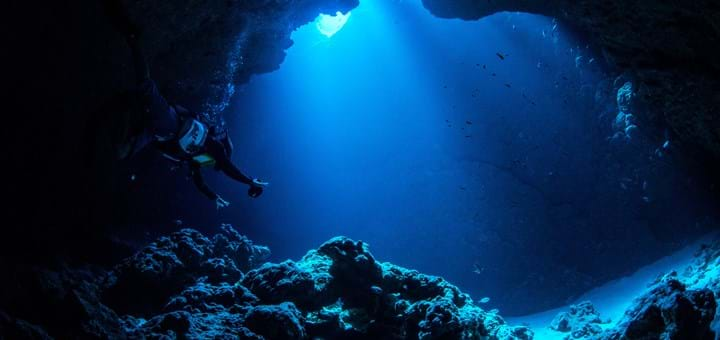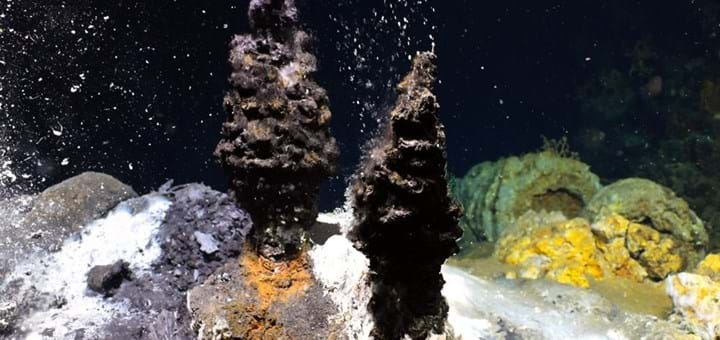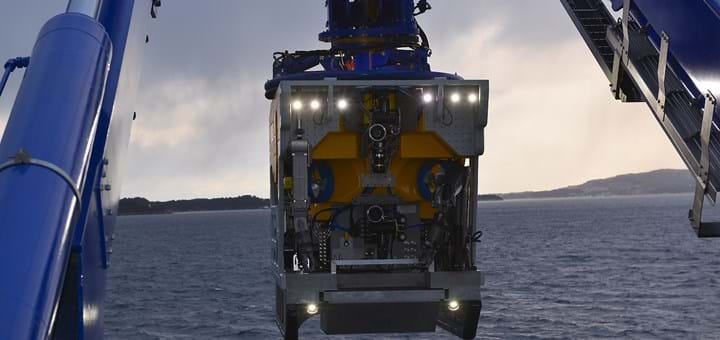Mastering the Ocean Frontier of Marine Minerals

– To be part of the beginning of what potentially will be a new industry for Norway is quite an opportunity and challenge, says Anette Broch Mathisen Tvedt, CEO and co-founder of Adepth Minerals.
A recent forecast report from Rystad Energy predicts strong growth within marine minerals with a potential of 20 billion NOK in annual revenues and 21,000 new jobs in Norway.
New cluster member, Adepth Minerals is one of the companies who can contribute to quantifying and extracting the marine minerals resources that lie on, or below the seabed.
– I hope we really can contribute to creating value for all stakeholders, says CEO and co-founder Anette Broch Mathisen Tvedt.
Newcomers in an Emerging Market
A positive feedback from the Norwegian Petroleum Directorate on Adepth Mineral’s proprietary deep sea mineral exploration technology and data management methodology resulted in the establishment of the company situated in Bergen Norway, in June 2020.
– We are going to explore, discover and produce commercial deep sea minerals through sustainable marine operations, says Tvedt, – We will do this by integrating Big data & AI technology and relevant subsea technology in our chase for significant discoveries, she continues.
Although Adepth Minerals is a new company, their team comprises of people with hands-on and recent experience from both exploration and deep sea operations, digital tools, and developing state of the art subsea technology and equipment.
ADEPTH’s strategy is to perform sustainable exploration and extraction of deep sea minerals powering the transition to a low carbon future. Adepth are now building an organization with relevant competence in order to be pre-qualified by the Norwegian Petroleum Directorate (also responsible for deep sea minerals) and be ready for the 1st licence round and awards in 2023.
A New Industrial Adventure
The ocean is a vital source of resources for the world, however it remains remarkably under-explored and the OECD estimates that the maritime industries can double their contribution to the global economy by 2030, compared with 2010. Tvedt is convinced that the marine minerals market will contribute to this growth.
– Absolutely, she says. – We see that the world desperately needs more minerals found and produced within a regulated framework and as the Norwegian continental shelf (NCS) seems to open up for deep sea mineral exploration in 2023, we now need to be smart with the limited time we have and ensure that we collect the right data to do proper mapping and assessment of the prospectivity of the deep sea minerals. If the results from the exploration phase shows that the potential is as great as suggested, deep sea minerals will be a new industrial adventure for Norway, she states.
A Sustainable Home Market
2 per cent of the world’s spreading ridges hosting massive sulphides containing especially copper, cobalt and zinc are placed in Norwegian exclusive economic zones. This places Norway only behind Fiji as the countries with the largest economic right to these ridges globally. 64 per cent are in international waters.
This gives Norway a unique position with possibility to build a home market with significant exporting potential.
However, there is an on-going public debate about the potential harmful effects marine mining can have on life underwater, and if the minerals can be extracted in a sustainable manner.
– We think it can be extracted sustainably, states Tvedt, – and we will contribute and ensure we do so both socially and environmentally. Today, minerals are mined mainly in countries in Africa, South America and Asia, where the mining industry makes major inroads into nature. In these regions the extraction process requires a lot of "dirty" energy and large consumption of water which in turn leads to pollution of local water sources. In addition, extraction often takes place under demanding working conditions with a high risk to life and health. In sum, therefore, today's mineral extraction is largely unethical and not sustainable, she says.
She explains that doing Deep Sea Mining on the Norwegian continental shelf (NCS) has several positive aspects, i.e. predictable framework conditions, large exploration areas, large deposits of minerals along slow spreading subsea volcanic ridges, seemingly 10 - 100 times greater concentration of minerals than on land (“gehalt") and geographical proximity to the largest markets (Europe). Additionally, comes the opportunity to lower environmental footprint by using new technology such as hydrogen, wind and autonomous operations.
What is Next
The suggestion for the impact assessment program for mineral activities came out early January, with a hearing deadline in April. This will be followed by a phase of answering the aspects of the impact assessment including knowledge base on geology, business activity and natural conditions and environmental aspects.
– The results of this will in turn result in a hopefully positive decision of opening of the NCS for deep sea mineral exploration and production in 2023, and hopefully the 1st concession round will be announced, says Tvedt. –We need to know more about the potential of deep sea minerals on the NCS. Only around 3 % of the area have been properly mapped. We need more data, and we need the right data. Integration of more core data and better, high resolution maps are crucial for the future exploration and understanding of resources, she says.
ADEPTH will take a key role to ensure they collect enough data and core material to properly assess the resource potential. Two of the Co-Founders, Bjarte Hellevang and Werner Svellingen, have even been on research cruises on the Mohns Ridge.
– Here we have heavy and unique expertise, and are now well under way with further development of methodology for mapping of the deep sea minerals and resource evaluation methodology of the potential in the form of a software. With all the experience the team has from deep sea minerals already and mining, together with hands-on operational competence and experience both in the exploration, finding and production phase from oil and gas we are ready to be the leading deep sea mineral exploration company in Norway, she explains.
Why Cluster
Adepth Minerals became member of the cluster soon after their establishment last year.
– We find that GCE Ocean Technology offers a robust industrial cluster with strong ties to the world leading geoscience department at UiB. This will enable us to fast track the industrial development of deep sea minerals as an industry and ADEPTH Minerals as a company. It also enables us to grow our network, our competence and have an arena for collaboration across the ocean industries. We have also received support for securing Innovation Norway funding and are currently invited into interesting new R&D projects which will take us further. Additionally, we have had the opportunity to attend several of the very interesting and relevant events, she concludes.
Contact Information
Kjersti Boge Christensen
Communication Manager


ADEPTH Minerals AS is founded by an experienced team with complementary experience from geoscience and subsea technology and operations.
We are based in Bergen, Norway, where there is a strong professional environment with the University in Bergen in front on deep sea minerals, together with a cluster of subsea companies developing the next generation of sustainable ocean technology.
Adepth Minerals is aiming for sustainable exploration and extraction of deep sea minerals powering the transition to a low carbon future
Additionally the team has extensive experience from research from the Mohns Ridge, the key area for mineral exploration on the Norwegian Continental Shelf.



